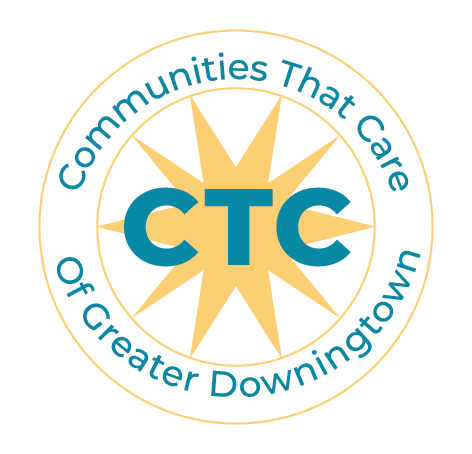Do As I Say AND As I Do
They say “Children are mirrors, they reflect back to us all we say and do.” As my kids are phasing into solid young childhood (ages 8 and 4) and becoming more outspoken, I’ve started to notice them reflect back both the intentional values I want to model to them (washing hands before eating, the joy of reading a good book) and the unintentional (interrupting others when speaking, select words muttered in frustration…). But if there’s anything this pandemic, and copious amount of together time, has reinforced, it is that just as parents may have “eyes in the back of their heads” to kids, kids have eyes on US at all times.
Keep reading for an essay by a fellow CTC Coalition about how parental actions and choices influence children’s decision-making skills, and what the author is doing to support positive choices with her own kids.
My Turn: Steering our children clear of addiction
By Kat Allen
My oldest son just turned 10, so I did what any parent who has worked in youth alcohol and drug prevention for years would do. . . I built a locking cabinet in my pantry to store the booze. My husband and I are not heavy drinkers, but we have beer or wine with dinner a few nights a week, and we host a weekly game night with our friends (the grown-ups only, after the kids are asleep), so we always seem to have a variety of beer, wine, and hard liquor around in the pantry and fridge. And — as they’re entering their pre-teen years — I can’t stop thinking about the modeling I’m doing by having all this booze in plain sight (and in easy reach) of my kids and their friends. Let me back up and say that I trust my kids — or, well, I trust them as much as any parent of a 10- and a 6-year-old trusts their kids. They’re pretty cautious and relatively obedient little ones. But alcoholism runs in the family (is there a family that addiction does not run in?) and my husband and I have worked in substance use treatment and prevention, respectively, long enough to have seen over and over again the devastation that alcohol and other drugs can cause to families. So while I know that there’s no surefire way to vaccinate my kids from this risk, I also know from my 12 years of working in this field there are some things I can do that will help to reduce the risk.
I’ve been talking to my kids about the harms of alcohol, marijuana, and other drugs on the developing brain and about how it’s very different for a young person to drink or use drugs than it is for an adult. Studies show that kids who believe it’s risky to use drugs and alcohol are less likely to use, and kids who know that their parents don’t approve of them drinking, smoking and using drugs are far less likely to use.
I’ve talked to them about our family history of addiction and about the family members they never got to know because of alcohol and other drugs. Studies show that kids who know a lot about their families tend to do better when they face challenges.
My husband and friends and I always clean up the “empties” before we wrap up our game night, because I don’t want my kids to come downstairs in the morning and see that Friday night fun for grown-ups looks like a load of empty beer bottles on the table. Studies show that kids whose parents don’t involve them in their own substance use in any way are less likely to use — so “Hey Junior, would you grab me a beer from the fridge?” is not best practice.
At some point when they’re in charge of their own social lives, I’ll need to set clear rules and consequences about curfews and substance use. I’ll make sure the rules are monitored and fairly and consistently enforced.
Of course, I don’t mean to make it sound like this stuff is all there is to substance use prevention. There’s the all-important emotional skills (how do you handle big feelings like anger and anxiety in healthy ways?) and social skills (how do you make a new friend, or say “no” politely to a request from a friend?) that we’re teaching them — intentionally or not— through modeling and teachable moments.
And there’s the super-protective-factor of the warm, caring, safe relationship that kids have with their parents. These are far beyond the scope of my locking cabinet in the pantry but obviously tremendously important to drug and alcohol prevention and just about everything else in life.
My first 10 years as a parent have taught me that parenting is far more complicated than I ever imagined it could be, and I hear that it’s going to get even more complicated before it gets easier (is it wrong that I’m looking forward to grandparenting?).
Locking cabinet or not, my kids are independent little creatures with their own personalities and their decisions now and in the future are beyond my control. But they’re not beyond my influence, and I’ll keep doing my best, which will never be perfect, knowing that every little bit counts.
Kat Allen works at the Partnership for Youth at the Franklin Regional Council of Governments She has coordinated the Communities That Care Coalition of Franklin County and the North Quabbin since 2004.
